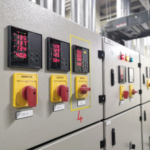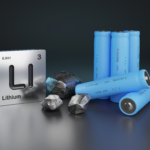Lead-acid batteries have traditionally been the preferred choice for critical power applications due to their reliability, cost-effectiveness, and robustness. Here are some factors to consider when comparing lead-acid batteries to lithium-ion batteries for critical power applications:
Reliability: Lead-acid batteries are known for their robustness and long track record of reliable performance. They have been used in critical power applications for decades and have a proven track record of providing backup power in various industries. This reliability is particularly important in critical applications where uninterrupted power supply is essential.
Cost: Lead-acid batteries are generally more cost-effective upfront compared to lithium-ion batteries. They have a lower initial cost, making them a more attractive option, especially in applications where cost is a primary consideration.
Deep discharge capability: Lead-acid batteries can handle deep discharge cycles better than lithium-ion batteries. In critical power applications, where there may be frequent power outages or prolonged backup power needs, lead-acid batteries can provide reliable performance even with deep discharges.
Temperature tolerance: Lead-acid batteries have better tolerance for extreme temperatures compared to lithium-ion batteries. They can operate effectively in a wide range of temperature conditions, which is particularly important in critical power applications that may experience harsh environments or temperature fluctuations.
However, it’s important to note that lithium-ion batteries have made significant advancements in recent years and have their own advantages, even in critical power applications:
Higher energy density: Lithium-ion batteries have a higher energy density compared to lead-acid batteries. This means they can store more energy in a smaller and lighter package, which can be advantageous in critical power applications where space is limited.
Longer cycle life: Lithium-ion batteries generally have a longer cycle life compared to lead-acid batteries. They can withstand a larger number of charge-discharge cycles before their capacity significantly degrades. This can be beneficial in critical power applications that require long-term reliability and reduced maintenance.
Fast charging: Lithium-ion batteries can be charged at a much faster rate than lead-acid batteries. This can be advantageous in critical power applications that require quick recharge times to ensure readiness for subsequent power outages.
Ultimately, the choice between lead-acid and lithium-ion batteries for critical power applications depends on specific requirements, such as the expected duration of backup power, the frequency of power outages, available budget, and space constraints. It’s important to evaluate these factors and consult with experts to determine the most suitable solution for a particular critical power application.





